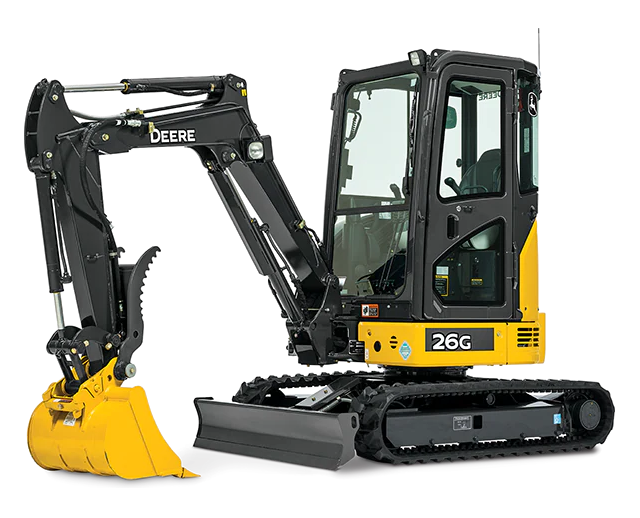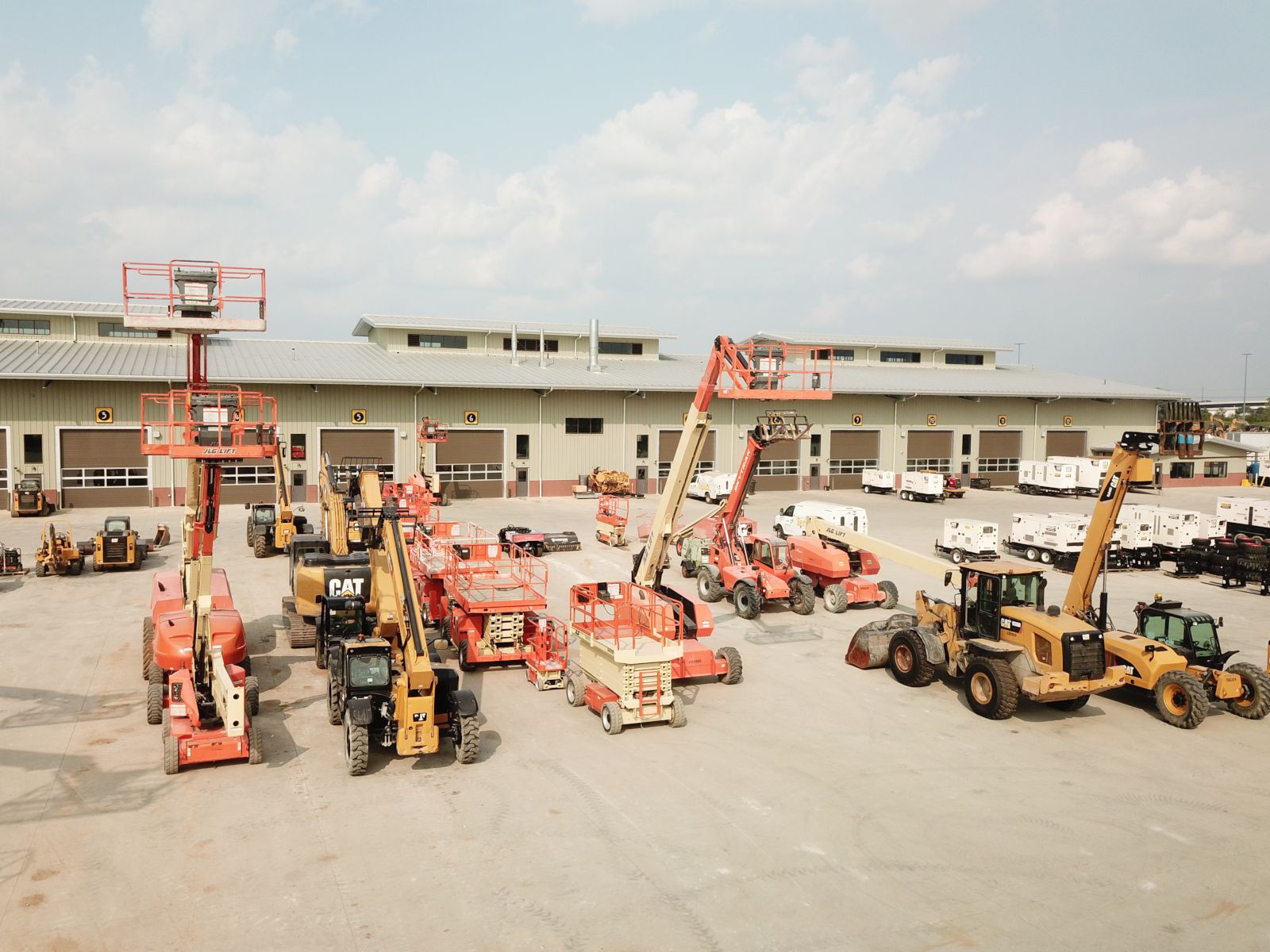Mini Excavator Rental: Compact Machines for Tight Spaces
Mini Excavator Rental: Compact Machines for Tight Spaces
Blog Article
Optimize Your Budget by Recognizing the Costs Related To Construction Tools Services
Comprehending the full extent of expenses connected with building and construction tools leasings is important for maximizing your budget plan. While the preliminary rental fee might appear simple, numerous added expenses-- such as transportation, fuel surcharges, and upkeep-- can swiftly build up, affecting your financial planning. In addition, recognizing different charges and the intricacies of rental contracts can help prevent unforeseen economic problems. What methods can be employed to efficiently take care of these costs and guarantee a much more efficient rental experience?
Overview of Rental Prices
When taking into consideration building and construction tools services, recognizing the associated costs is extremely important for efficient budgeting and task preparation. Rental expenses can vary substantially based on several factors, including tools kind, duration of leasing, and location. The preliminary rental cost frequently shows the equipment's market demand and its linked operational abilities, influencing the overall cost.
In addition to the base rental rate, secondary prices may arise, such as transportation charges, gas surcharges, and upkeep costs. It is necessary to make up these added costs to properly assess the complete price of renting tools. In addition, the rental period can impact pricing; longer services might certify for discounted rates, while short-term services could sustain greater day-to-day fees.

Break Down of Rental Rates
A thorough understanding of rental prices is vital for service providers and job supervisors aiming to enhance their spending plans. Rental rates for building and construction tools commonly include several elements, consisting of base prices, time-based costs, and use fees.
Base rates are the core fees related to the service of the equipment, often figured out by the kind and dimension of the machinery. These rates can vary dramatically, influenced by elements such as tools need, accessibility, and local market patterns. Time-based costs, which may be daily, weekly, or monthly, serve to fit different job timelines and rental durations.
Additionally, rental rates might consist of use charges, which are appropriate when equipment is utilized beyond a specified threshold, making certain that the rental business can represent wear and tear. Seasonal need changes can additionally affect rental prices, with peak construction seasons normally commanding greater costs.
Additionally, comprehending the rental firm's policies regarding upkeep and insurance can supply more understanding into the total price framework. By examining these parts, service providers can make enlightened choices, making sure the choice of rental tools lines up with both task demands and budget plan constraints.
Added Costs to Consider
Recognizing the intricacies of extra costs is vital for professionals to handle their total service expenditures efficiently. Past the conventional rental rates, different supplementary costs can considerably influence the total expense of devices rental. These charges often include shipment and pick-up costs, which can vary based on additional hints range and logistics associated with moving the tools to and from the work website.
Moreover, some rental companies might enforce gas surcharges if the equipment is returned with much less fuel than when rented. It is likewise vital to know prospective cleaning charges, particularly for specific tools that this requires detailed maintenance after usage.

Thoroughly evaluating the rental contract and clearing up these extra costs upfront can aid contractors make sure and stay clear of unanticipated costs that budgets remain undamaged throughout the project lifecycle.
Repair And Maintenance Costs
Routine maintenance and repair work expenditures are often forgotten variables that can significantly influence the general expense of construction equipment rentals. When renting tools, it is important to think about not just the rental costs yet additionally the prospective costs connected with maintaining the machinery in optimum operating condition.
Many rental companies consist of standard upkeep as part of the rental arrangement; nevertheless, much more substantial fixings or unexpected break downs can lead to extra costs. It's vital to assess the rental agreement very carefully to understand what upkeep services are covered and what obligations fall on the renter.
In addition, equipment that is not properly maintained can result in ineffectiveness on the task site, possibly causing hold-ups and increasing project costs. To alleviate these dangers, it is a good idea to carry out normal evaluations and keep open communication with the rental provider concerning any issues that arise during use.
Insurance and Responsibility Expenses
Insurance coverage and obligation prices are essential elements that can considerably impact the overall expense of building tools leasings (rental company near me). These prices make certain that both the rental business and the customer are shielded from potential financial losses arising from crashes, damages, or theft throughout the rental period

Furthermore, customers must know any kind of deductibles or exclusions in the insurance plan, as these can affect possible out-of-pocket expenses. Understanding the conditions of any kind of insurance policy coverage is essential to avoid unexpected expenses. Ultimately, budgeting for insurance coverage and obligation expenditures can assist ensure a smoother rental experience and safeguard versus economic risks linked with building jobs.
Conclusion
To conclude, an extensive understanding of the prices connected with building and construction equipment recommended you read services is important for reliable spending plan management. By evaluating rental rates, extra costs, upkeep expenses, and insurance organizations, people and needs can decrease unanticipated expenses. This strategic approach not only enhances cost-effectiveness but additionally makes certain that tasks advance smoothly and efficiently. Ultimately, informed decision-making regarding equipment leasings adds to the total success of construction undertakings.
Rental expenses can differ dramatically based on several factors, consisting of equipment kind, duration of leasing, and place (heavy equipment rental). The rental period can influence pricing; longer services may qualify for affordable prices, while temporary leasings may sustain higher daily costs
By conducting extensive study and involving with respectable rental firms, specialists can effectively navigate the intricacies of rental prices, ultimately optimizing their economic sources.
Beyond the basic rental prices, numerous additional charges can considerably impact the total expense of equipment leasing. Rental companies usually provide liability insurance coverage that covers injuries to third parties or damage to residential or commercial property, while equipment damage insurance policy can cover the expense of repair work or substitute if the rented out equipment is damaged.
Report this page